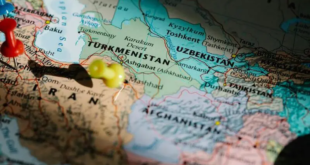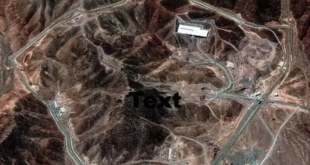 TEHRAN (FNA)- The world’s fourth-largest oil exporter Iran plans to boost shipments to fast-growing energy consumers China and India and may reduce the flow to other buyers, a top Iranian oil official said on Thursday.
TEHRAN (FNA)- The world’s fourth-largest oil exporter Iran plans to boost shipments to fast-growing energy consumers China and India and may reduce the flow to other buyers, a top Iranian oil official said on Thursday.
“China and India are growing economies. It is obvious to everybody they need more energy,” Ali Asghar Arshi, executive director for international affairs at Iran’s state oil firm NIOC, told Reuters in an interview in Tehran.
“We are opening offices in Bombay and Beijing to focus on deals to sell more crude… If we increase volumes to them we will reduce quantities to some others and have less for spot sales.”
Rising oil consumption from China and India has offset falling demand in top energy consumer the United States.
Arshi declined to say how much more crude Iran aimed to sell to India and China or which countries might receive less. Iran ships about 450,000 barrels per day (bpd) of its 2.5 million bpd crude exports to China and about 380,000 bpd to India.
NIOC aims to seal a deal to boost crude sales to Indian refiner Reliance in September, Arshi said. Reliance will run the crude at the giant new 580,000 barrels per day (bpd) Jamnagar refinery, scheduled to start operations later this year.
NIOC and Reliance already have in place a deal exchanging crude exports for gasoline, Arshi said. The exchange saves both companies from having to open letters of credits with banks to guarantee shipments, he added.
Reliance restarted fuel exports to Iran in July after halting shipment last year when French banks Calyon and BNP Paribas stopped offering credit on the deals in response to western political pressure.
The United States has sought to isolate Iran over its peaceful nuclear program.
The United States and its Western allies accuse Iran of trying to develop nuclear weapons under the cover of a civilian nuclear program, while they have never presented any corroborative document to substantiate their allegations. Iran denies the charges and insists that its nuclear program is for peaceful purposes only.
Tehran stresses that the country has always pursued a civilian path to provide power to the growing number of Iranian population, whose fossil fuel would eventually run dry.
State-run companies of Asian economies keen to secure future energy supplies are less susceptible to US pressure to stay out of the Islamic Republic and are taking a bigger role in its energy sector.
Iran is importing fuel oil from Turkmenistan, Arshi said. Iran has halted its own fuel oil exports to help it cope with a drought, which in turn has contributed to higher fuel oil prices on the Asian market. Tehran has also increased gas oil imports for power generation.
The water shortage has knocked out most of the country’s 7,000 megawatts of hydroelectric power generation capacity, meaning Iran has been burning twice as much fuel oil for power generation as a year ago, Arshi said.
Power outages are still hitting Tehran a couple of times a day but should improve in September, Arshi said. By then, temperatures will have dropped and Iran should have stockpiled more fuel for burning at power plants.
But hydroelectric power might not be fully restored until near the end of winter in March, Arshi said.
Iran’s glut of crude that has been in floating storage off its southern Persian Gulf coast near Kharg Island has also shrunk.
Arshi said it now stood at less than three million barrels, down from the roughly 30 million barrels industry sources had estimated was stored on Very Large Crude Carriers (VLCCs) in May.
The crude had been mostly sold in spot sales to refiners holding term contracts with NIOC, Arshi said, and the rest would be shipped south for processing at the Bandar Abbas refinery.
 Eurasia Press & News
Eurasia Press & News

